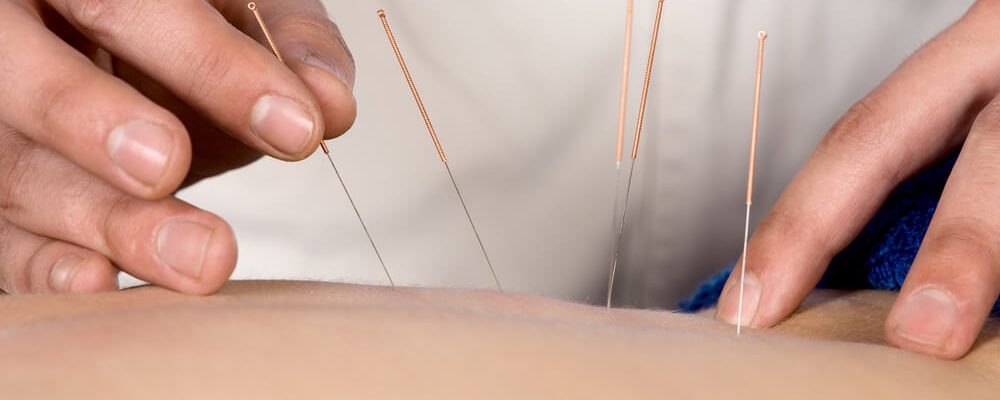
Licensed Acupuncture Therapists In Taunton
Free Health Chat
At Marlborough House, our Acupuncturists offer all our clients the opportunity to come in and discuss how they can help and answer any questions you may have on the treatment.
Call us on 01823 272227 or email contact@mh-tc.com to book.
What is Acupuncture / Stylostixis Therapy?
Traditional acupuncture is a healthcare system based on ancient principles which go back nearly two thousand years. It has a very positive model of good health and function and looks at pain and illness as signs that the body is out of balance. The overall aim of this treatment is to restore the body’s equilibrium.
What makes this system so uniquely suited to modern life is that physical, emotional and mental aspects are seen as interdependent and reflect what many people perceive as the connection between the different aspects of their lives.
Based on Traditional Chinese acupuncture beliefs, acupuncturists are trained to use subtle diagnostic techniques that have been developed and refined for centuries. The focus is on the individual, not their illness, and all the symptoms are seen in relation to each other. Each patient is unique; two people with the same western diagnosis may well receive different acupuncture treatments.
Traditional acupuncturists believe that the underlying principle of treatment is that illness and pain occur when the body’s qi, or vital energy, cannot flow freely. There can be many reasons for this; emotional and physical stress, poor nutrition, infection or injury are among the most common. By inserting ultra-fine sterile needles into specific acupuncture points, a traditional acupuncturist seeks to re-establish the free flow of qi to restore balance and trigger the body’s natural healing response.
About the Treatment
During your first visit, your Acupuncturist needs to gain a thorough understanding of your main complaint and your general health and lifestyle. This involves asking questions about your current symptoms and your medical history, as well as such things as your sleeping pattern, your appetite and digestion, and your emotional wellbeing. Women are also asked about their menstrual cycle and any past pregnancies and childbirth.
You might feel that some questions appear unrelated to your condition, but the information you give helps your practitioner to form a more complete picture of your health and lifestyle. Your acupuncturist will also take your pulse on both wrists and may examine your tongue and feel for areas of muscular tension or pain.
Your Main Health Complaint
When talking about your main complaint, the practitioner might ask you to describe in your own words what the symptoms feel like and how severe they are. You may also be asked how long you have been having the symptoms, whether they are constant or intermittent and how frequent they are. You should mention any medications that you are taking and whether you have tried any other therapies.
In order to make a diagnosis according to traditional Chinese medicine theory and to find the right treatment approach, the practitioner will also want to know more specific details.
Based on all the information you have given, the practitioner will make a diagnosis and put together your treatment plan, which may include lifestyle and dietary advice as well as acupuncture. Your practitioner will use very fine, single-use pre-sterilised needles to stimulate specific acupuncture points on your body. Because energy meridians range across the whole body, the points used are not necessarily close to where you experience pain or discomfort. For example, if you suffer from headaches, needles might be inserted in your foot or hand.
FAQ’s
How many sessions will I need?
That depends on your individual condition. At first, your acupuncturist will normally ask to see you once or twice a week. You may start to feel benefits after the first or second treatment, although long-standing and chronic conditions usually need more time to improve. Once your health has stabilised, you may need top-up treatments every few weeks. Traditional acupuncture is also very effective when used as preventive healthcare and many people like to go for a ‘retuning’ session at the change of each season throughout the year.
What conditions can acupuncture treat?
Acupuncture is known for its effectiveness in managing a variety of health conditions. Acupuncture can be used –
- For depression and anxiety
- For back pain
- For migraines
- For panic attacks
- For headaches
- For arthritis
- For fertility issues
- For digestive disorders
Consult with an acupuncturist to determine if acupuncture can be beneficial for your specific condition.
Can acupuncture help with Irritable Bowel Syndrome (IBS)?
Acupuncture for IBS has been found to provide relief but may not cure it. The treatment aims to restore balance in the body and regulate the digestive system, which can alleviate IBS symptoms. It helps manage symptoms such as abdominal pain, bloating, and irregular bowel movements.
What does it feel like?
Most people find acupuncture to be very relaxing. Patients often describe the needle sensation as a tingling or dull ache. This is one of the signs the body’s qi, or vital energy, has been stimulated.
What are the five elements of Acupuncture?
Acupuncture consists of five elements of Chinese medicine – Wood, Fire, Earth, Metal, and Water. These elements are considered fundamental energies that exist within the body and are interconnected. Each element corresponds to specific organs, meridians (energy pathways), emotions, and other aspects of the human experience.
How will I feel after a treatment?
You are likely to feel relaxed and calm. If the treatment has been particularly strong you may feel tired or drowsy and it is worth bearing this in mind if you plan to drive or use any other machinery soon afterwards.
